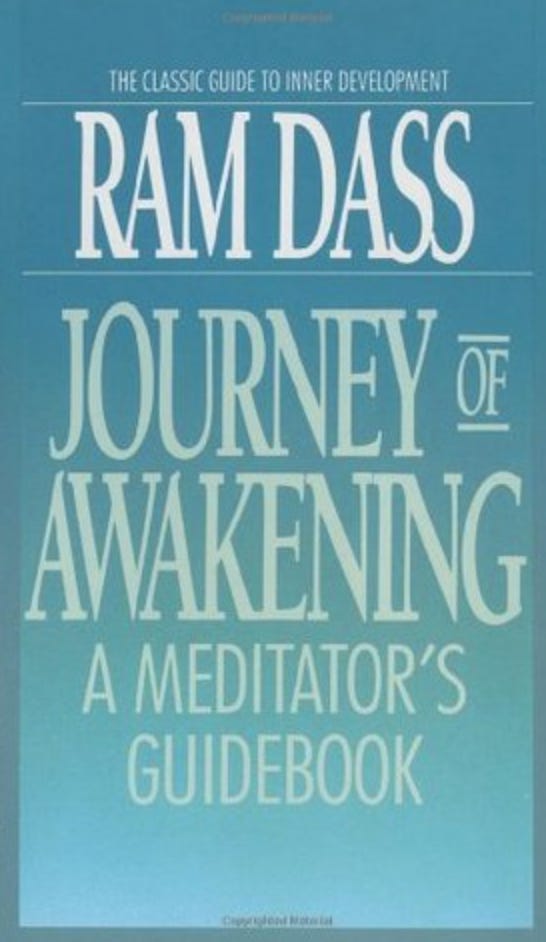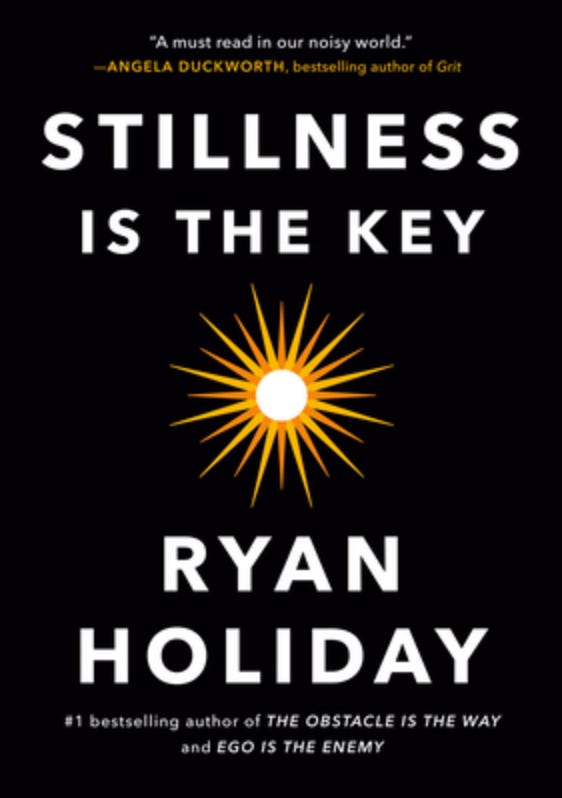A few days ago, my Dad told me a story from his time volunteering in the local Bingo Hall, about a cantankerous old woman who came in to play every week. (She wouldn’t have stood out to me as a kid, I remember being dragged along, thinking that all The Bingo Hall creatures were as weird as the ones in Mos Eisley Spaceport) “A more wretched hub of scum and villainy…”.
Ahem. I’m off topic.
Most gamblers are superstitious, but this woman was on a whole ‘nother level. She believed that her “pickles” (little lottery card things) should be drawn only from the top right corner of the box. She would not let my Dad do it, since it required a “woman's touch.” On days when there were only men in the booth, my Dad would have to go find a random woman to satisfy her needs. Then she would go sit in the exact same seat (she got there early to claim it each week, and Lord help anyone who sat in it before she got there). Win or lose, she would go on to repeat the same routine week in, week out.
Our cultural ethos tells us that our beliefs “deserve respect.”
It's so funny to me that this woman can go to the bingo hall every weekend, go through this inane routine, and we laugh at her superstitions, but the second she enters a place of worship, or goes on a political rant, her beliefs deserve respect?
I don't think so. It's time for a new narrative.
Rather than saying “respect my beliefs” what if we started saying: “As a human being, I have the ability to create beliefs out of thin air, and the outside world can cause me to be superstitious pretty easily, so I should probably be careful what I believe?”
We are what we pretend to be, so we must be careful what we pretend to be.”
-Kurt Vonnegut.
Humans deserve respect. Our beliefs do not. We can make up beliefs out of thin air! Our beliefs need to be questioned and stress-tested, lest we end up like Adolf Hitler.
You heard me right. Before he became Capital-H Hitler, the 20th century's top supervillain was an angry 34-year-old who went to prison for leading a failed Bavarian coup in 1924.
After his imprisonment, he would say that his time in Landsberg was his “university sponsored by the state.” He read widely, taking a deep dive into the classics of history. But he did not read to learn or to challenge himself. He read to pad his own biases and inflate his already overfull ego. After all of that reading, he said (years later) “I recognized the correctness of my views.”
How many of us already consume information this way? I know I’m guilty of it. Finding articles and videos we agree with, made by people we agree with, that we share with an echo chamber of people we already agree with? Never challenging ourselves, never questioning our deeply held beliefs.
We all know what happened after Hitler was released. He went on to terrorize the world. He was directly and indirectly responsible for the deaths of millions of innocent human beings. When it was time for reckoning, he poisoned his dog and shot himself in the head in a concrete bunker rather than face justice.
How different could his life have been if he’d been willing to challenge his beliefs? His story could have been one of redemption, instead of tyranny.
Obviously, Adolf Hitler is an extreme example of what happens when the certainty that you're right meets massive amounts of power. We will probably never have that level of power, but the certainty that we’re right without questioning ourselves or seeking self-awareness can cause us to misuse the power that we have in our day-to-day lives.
One of Webster's definitions of the word ‘tyrant’ is: “one resembling an oppressive ruler in the harsh use of authority or power.” Domestic abusers are tyrants. Bad bosses or managers are tyrants. People who cannot let go of their egotistical beliefs become tyrants.
Let's look at a good example of someone who served prison time and reformed. When he went to prison, Malcolm X was named Malcolm little. By his own admission, he was a violent criminal, sentenced to 8 to 10 years for larceny.
His rage consumed him in his first year, and he spent a lot of time in solitary for violent offenses. He ranted so loudly against God in his cell that the guards nicknamed him ‘Satan.’ And so it went until his sister got him transferred to a different prison, and he started reading.
Though Malcolm's reading was more targeted, he read many of the same philosophical classics as Hitler. Yet his experience could not have been more different. He learned. There's a quote in his autobiography from the day X read the biblical story of Paul's conversion in the prison library:
“I have since learned—helping me to understand what then began to happen within me — that the truth can be quickly received, or received at all, only by the sinner who knows and admits that he is guilty of having sinned much. Stated another way: only guilt admitted accepts truth. The Bible again: the one people whom Jesus could not help were the Pharisees, they didn't feel they needed any help.”
Two men go to prison and spend most of their time reading. One reads and says “I recognized the correctness of my views.” He goes on to commit genocide, suicide, and have his name become synonymous with evil itself.
The other reads and says “only guilt admitted accepts truth.” He goes on to become one of the greatest civil rights forces of the 21st century.
To look at the sum of human knowledge and come away thinking that whatever you already happen to believe in your dusty corner of the world is 100% correct? That’s insanity.
Do you want to be the revolutionary or the tyrant?
What I’m reading:
I read two books about quieting the mind this week, and hot damn did I need them. It’s the end of the quarter and grades are due. I started as an assistant soccer coach and I’m maintaining my writing schedule. With that in mind, I read:
Journey of Awakening by Ram Dass

This book found me at just the right time, showing up in a free little library in a city I’m hardly ever in. Read in conjunction with the other book I read this week, it is *chef’s kiss* beautiful.
Meditation is one of those things that there never seems to be enough time for. In Journey of Awakening, Ram Dass lays out how the average person can build meditation into their daily life, rather than trying to shoehorn it into ten-minute intervals. He shows us that life itself can be meditation if we’re willing to build it in.
“What Einstein demonstrated in physics is equally true of all other aspects of the cosmos: all reality is relative. Each reality is true only within given limits. It is only one possible version of the way things are. There are always multiple versions of reality. To awaken from any single reality is to recognize its relative nature. Meditation is a device to do just that.”
One of the most wonderful things about this book is that Ram Dass doesn’t try to be a guru. He packs this book with quotes from spiritual teachers both ancient and modern (for 1978). If you are having trouble finding stillness in your life, read this book!
Speaking of stillness…
Stillness is The Key by Ryan Holiday

This is the third and final Ryan Holiday book from the boxed set that I bought (The Way, The Obstacle, and The Key) and by far my favorite. Ryan Holiday is at the top of his game here, as always pulling together lessons from the greats of history to show us why we need to cultivate stillness.
“How different would the world look if people spent as much time listening to their conscience as they did to chattering broadcasts? If they could respond to the calls of their convictions as quickly as we answer the dings and rings of technology in our pockets?”
From prime ministers to Zen masters, stillness has been a quality many great people have shared.
In the modern world, we are stressed, overworked, and often feel that we are on a treadmill of nonsense. We know that we need to calm down, but we’re not sure how. This book gives us insights and tools for how to live calmer lives in our quests to be more effective.
A few great podcasts (and an insanely good album).
Living With The Gods
As I was doing research on belief for this week’s newsletter, I stumbled on this delightful podcast from BBC Radio 4, produced in partnership with the British Museum. It’s a deep dive into the history of belief, starting with a lion-headed idol made of mammoth ivory found in the back of a cave.
The episode I’ve linked to is a particularly powerful exploration of the human relationship with fire, telling us the story of a flame that’s been burning for 1200+ years.
If you like history, and you’re anywhere near as fascinated by human belief as. I am, check this out! The narrator has a British accent….
Cal Newport on Daily Stoic.
Cal Newport is the bestselling author of Deep Work, a book about how we can use our time more effectively. Ryan Holiday interviews him about pandemic productivity and ways to be more effective in the digital age.
If you’ve been feeling like you’ve never got enough time to accomplish what you need to, give this a listen! There are quite a few tips on how to effectively restructure your life for effectiveness.
Next, a fantastic album:
Dreamland by Glass Animals
I. Cannot. Stop. Listening. It’s ethereal, it’s vibey, it makes you wanna bust a move. This album has been replayed in my car about 10 times in the last 48 hours, particularly the songs “Space Ghost Coast To Coast” and “Heat Wave.” Put this on while you’re cooking, and I guarantee that your kitchen will become a party zone.
And finally, the feel-good story of the week!

In July of 2020, a six-year-old boy from Cheyanne named Bridger Walker fought off a German Shepard that was trying to attack his younger sister. He was bitten in the face, hospitalized, and received 90 stitches for his efforts. Last October, the World Boxing Council awarded Bridger the Heavyweight Champion of The World Belt, and created a new weight class in his honor called “Bridgerweight.”
The full story can be found here.
That’s all for this week folks! As always, you can reply directly to this email to interact with me. If you enjoyed what you read, you can hit ‘like’ on this email, or leave a comment. If you really liked what you read, please hit ‘share’ and tell a few friends!
Thank you for reading,
Aaron.




